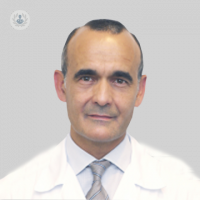Surgery of the heart valves
Written by:The classic access to the surgical treatment of valvular is performed through a median sternotomy, although current trends to reduce surgical aggression leads us to perform less invasive approaches. For example, to act on the floor aortic valve using a partial sternotomy, through a 7-8 cm incision, rather than the 15 to 20 cm full sternotomy.
Once exposed the heart of the technology is needed for excluding cardiac function and this is achieved through the connection of the patient to the extracorporeal circulation machine ( heart - lung machine ). Under these conditions you can stop and open the heart securely to the patient and thus access the heart valves.
Two procedures for heart valves
There are two types of procedures in surgery of heart valves: reconstructive surgery and prosthetic. In the first, it is returned to the proper functioning valve damaged by various surgical techniques. Is the mitral valve that more can benefit from this type of surgery. On the other side is the prosthetic surgery, which irreparably damaged valve is replaced by a prosthesis.
As for the type of prosthesis, we can distinguish between the mechanical and biological. The first are made of metal alloys that are strong and durable but require treatment with blood thinner for life Sintrom. Particularly suitable for children under 65 years. The biological prosthesis, made of animal tissue, deteriorate over time and might need to be replaced at about 10 or 15 years, but do not require anticoagulation and therefore allow a better quality of life. These are used most often in people over 65 years.
Diseases discussed
Different diseases can result in a valve stenosis or narrow ( not open well ), insufficient ( does not close properly ) or a double lesion (not open and close properly ). The most common are degenerative valvular disease, ischemic heart disease related ( myocardial infarction), rheumatic fever, and finally, endocarditis, caused by an infection of one or more valves.
Risks and benefits of the surgery of heart valves
Usually the patient has clear symptoms, but sometimes, when there are no symptoms, the diagnosis may be fortuitous and observe significant damage and cardiac function. It is therefore important a diagnosis and early surgery as much as possible. If detected at an appropriate time and the operation is not delayed, the recovery can be complete.
Today most heart operations are part of the daily routine cardiac surgeons, which allows us to offer the patient a relatively safe surgery. In fact, the risk is generally more influenced by other pathologies of the patient that the heart technique itself. Although clearly the complexity of the surgery also dial the risk is data such as age, state of the kidneys or lungs, extracardiac arteriopathy or“fragility” patients who ultimately decide the real risk of the operation.
The recovery from surgery is progressive and depends on each patient's social situation, preoperative situation and above all, to encourage them to face surgery. It's a recovery that is tolerated quite well, and many patients can now make a relatively normal life a month and a half of operation.




